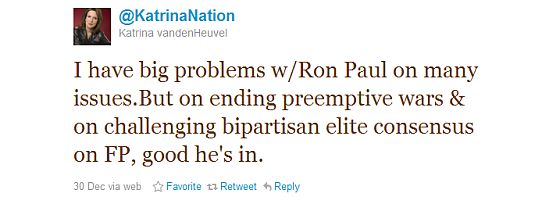The Atlantic Wire provides a well-rounded briefing on Sheldon Adelson, the billionaire casino magnate whose support for Newt Gingrich might not help him win the GOP nomination but “could be enough to burn down the Republican front runner in the process.”
“When Mitt Romney Came To Town”: Part One and Part Two
Atlantic Wire: Adelson grew up in the working class neighborhoods outside Boston and got started in business selling toiletries to hotels. He later dropped out of college, became a mortgage broker and ran a tour business. According to this profile from The New Yorker in 2008 (which is an excellent primer on Adeleson's rise to power), he made and lost more than one fortune, but then in 1979, he started a computer trade show in Las Vegas. (Comdex, an ancient ancestor of this week's CES.) Within a decade, his success with the show led him to purchase the old Las Vegas Sands Hotel. That was when he started his climb from "merely rich" to becoming a billionaire. He built a massive convention center next door, turning the city into a huge business gathering destination, then tore down the aging casino itself and built The Venetian, a massive hotel complex with high-end shopping, restaurants, spacious rooms, indoor canals, and of course, a glittery casino that exemplified the "new" opulent Las Vegas.
It was around the time that he bought the Sands that Adelson, who grew up as a Massachusetts Democrat, had a conversion to Republicanism, after befriending William Bush, the brother of George H. W. Bush. A relative newcomer to the world of the super rich, Adelson had the same proverbial epiphany that most newly wealthy people make when they see their 1040, arguing: “Why is it fair that I should be paying a higher percentage of taxes than anyone else?” The rest is obvious history.
As Adelson gained influence in Vegas, he began to spread his reach around the globe. In 2004, he made a deal with the Chinese government to open the first American-owned casino in Macao, a move that multiplied his wealth fourteen times in the last decade. (As a demonstration of his closeness China, he allegedly helped kill a Congressional bill denouncing Beijing's 2008 Olympic bid.) He has also been a major player in Israel-American politics, donating millions to AIPAC, the American Israel Public Affairs Committee, until abandoning the group after they supported an increase in aid to the Palestinians, who he considers an "invented people." He met with President George W. Bush in the White House to lobby against peace negotiations and worked to oust former Israeli Prime Minister (and former friend) Ehud Olmert after he declared a willingness to negotiate a two-state solution. In 2007, he opened in his own free daily newspaper in Israel that has been called a mouthpiece for current Prime Minister Benjamin Netanyahu.
In America, the 78-year-old billionaire has aligned himself with Gingrich who shares similar views on Israel. He was the biggest supporter of American Solutions for Winning the Future, a different PAC that Gingrich personally ran before he was a candidate, and was replaced with the "independent" Winning Our Future. Legally, Winning Our Future and the Gingrich campaign must remain separate, but this latest move only underscores how flimsy those rules are and how massive an influence super PACs are having on the primary. When essentially one person can keep an entire ad campaign alive, even after the candidate it means to support ceases to be viable, that's a discouraging fact of American politics. It's also one that won't quell any fears about the power of the 1%.

